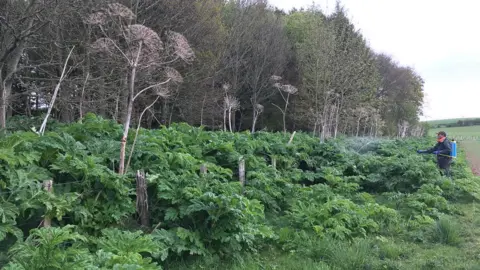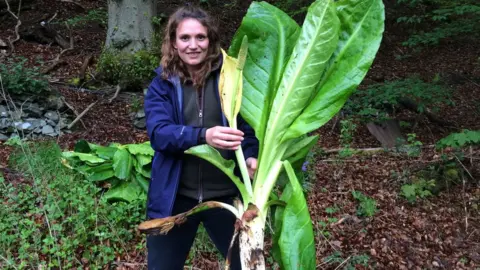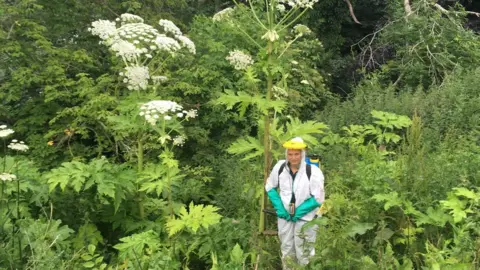River Tweed helps lead invasive species battle
 Tweed Forum
Tweed ForumA guide based on experiences in the Borders hopes to help tackle invasive plant species across the UK.
The successes of the Tweed Forum along the length of the River Tweed are being shared as best practice.
The guide - commissioned by The Rivers Trust - should help tackle the likes of giant hogweed, Japanese knotweed and American skunk cabbage.
The Tweed Forum has been dealing with the issue for nearly 20 years in response to "strong public demand".
 Tweed Forum
Tweed ForumIts invasives project started in 2002 following complaints including blistering and burns to the skin of people who came into contact with giant hogweed.
Invasive plant species were causing riverbank erosion and increased flood-risk and threatened the area's native biodiversity - including destroying spawning and nursery habitat for salmonid fish species.
They were also harming tourism revenue by reducing access to the riverbank for anglers and walkers.
Tweed Forum's action is credited with seeing a "vast reduction" in giant hogweed and Japanese knotweed.
American skunk cabbage has been contained to its single source of introduction and the group is also working on an experimental approach with rust fungus to control Himalayan balsam.
 Tweed Forum
Tweed ForumThe guide shares how the forum set about tackling its problems in the hope of helping others.
Director Luke Comins said: "Invasive plant species are notoriously difficult to eradicate but over the years, we have developed an approach that is seeing positive results and is making the prospect of eradication a reality."
However, he said they relied on the support and co-operation of a range of people and organisations in order to succeed.
Arlin Rickard, of The Rivers Trust, said the guide - available to download - should be "essential reading" for anyone trying to tackle invasive species.
